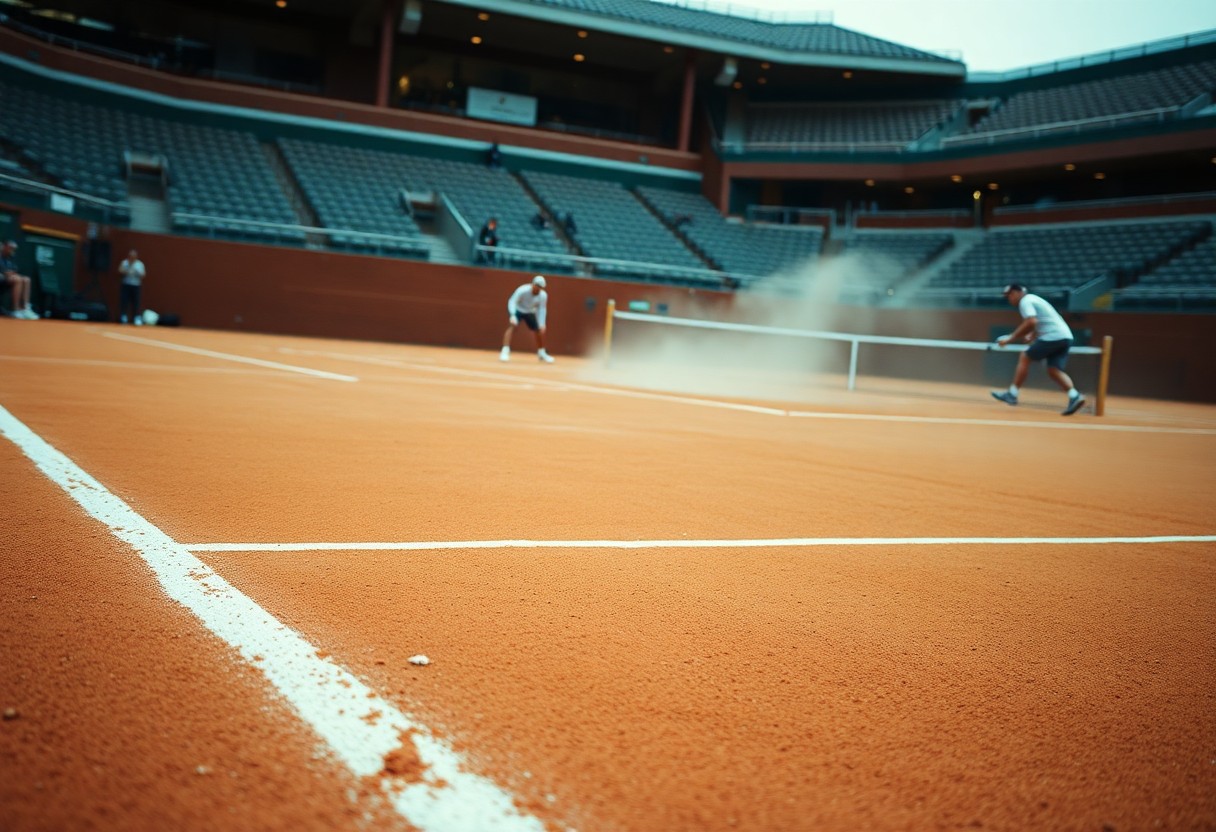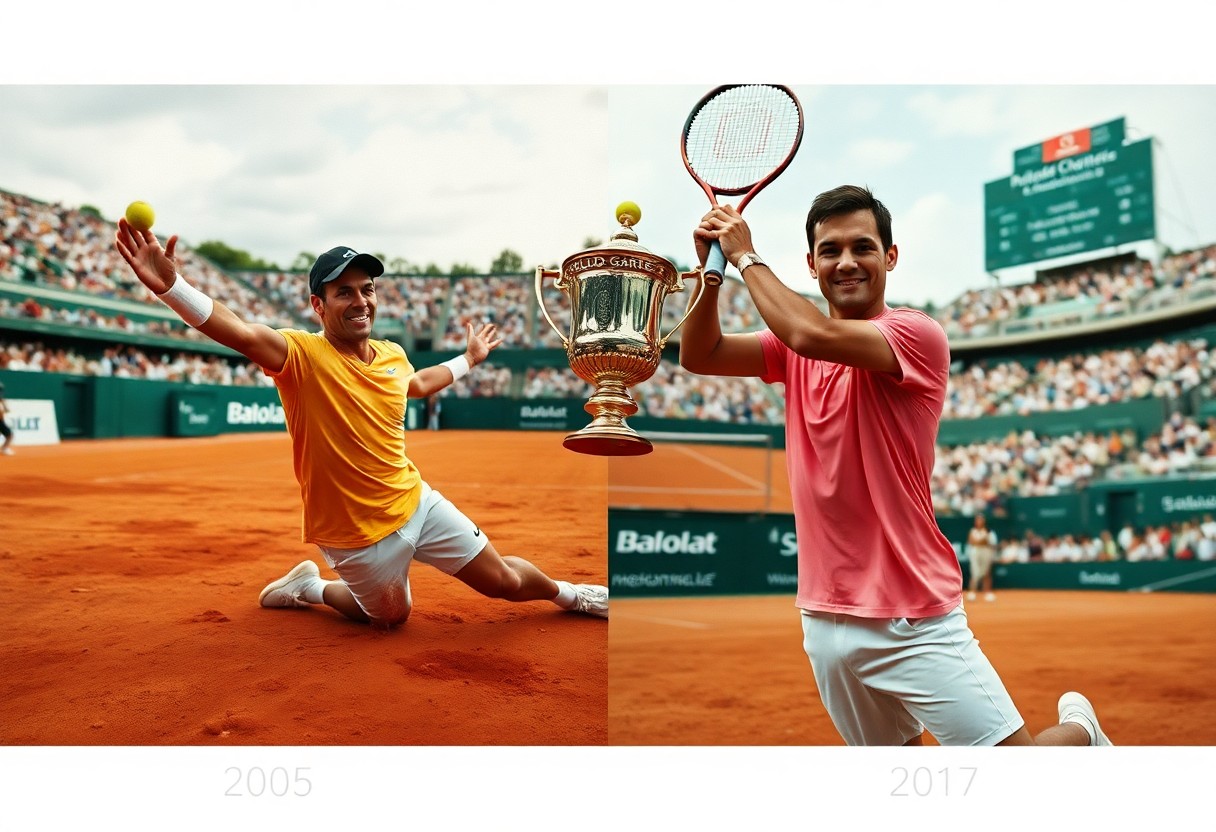Just how long can Novak Djokovic maintain his remarkable supremacy at the Australian Open? With an unparalleled record that includes multiple titles, his performance on the hard courts of Melbourne has set a daunting standard. However, younger contenders are emerging with fierce determination and evolving skills that could challenge his reign. As the upcoming tournament approaches, both fans and analysts are left wondering if Djokovic can continue to defy expectations, or if a new champion will rise to take the crown.
Novak Djokovic’s Historical Performance at the Australian Open
With a staggering 10 Australian Open titles to his name as of 2023, Novak Djokovic holds the record for the most victories at this Grand Slam event, firmly establishing his dominance on the hard courts of Melbourne. His remarkable achievement includes winning three consecutive titles from 2019 to 2021, showcasing both his consistency and ability to perform under pressure.
Key Matches and Milestones
Several iconic matches define Djokovic’s legacy at the Australian Open, including his historic five-set victory over Rafael Nadal in the 2012 final, which lasted nearly six hours, and his thrilling comeback against Dominic Thiem in the 2020 final. These encounters not only highlight his resilience but also underscore his status as one of the all-time greats.
The epic 2012 final against Nadal not only tested Djokovic’s physical limits but also solidified his reputation as a top-tier competitor. This marathon match showcased his unparalleled mental fortitude and ability to execute critical shots under immense pressure, ultimately laying the groundwork for his future successes. Djokovic’s victory against Thiem further emphasized his adaptability, as he came back from a two-set deficit to clinch the title, demonstrating his tenacity and skill in high-stakes situations. Collectively, these matches reflect a career marked by unforgettable moments and set a high bar for future competitors.
The Rise of Competitors
As Djokovic continues to dominate the Australian Open, several challengers are emerging with unique skills and tenacity. Players like Carlos Alcaraz and are showcasing their talents, pushing the boundaries of contemporary tennis. Alcaraz’s explosive game and young energy contrast sharply with Medvedev’s tactical prowess, indicating a shift that may threaten Djokovic’s reign. These players are not just contenders; they are transforming the landscape of men’s tennis, making every matchup a potential turning point in the pursuit of Djokovic’s legacy.
Emerging Talent Challenging Djokovic
Among the most promising talents, Carlos Alcaraz stands out with his incredible speed and power, having already clinched a Grand Slam title. Alongside him, players like Daniil Medvedev and bring formidable skills that challenge Djokovic’s tactics. Their relentless pursuit of excellence injects excitement into every match and raises the stakes of Djokovic’s quest for another title.
Historical Rivalries
Rivalries have always fueled tennis dynamics, but Djokovic’s most significant battles against Rafael Nadal and Roger Federer have defined an era. Their epic clashes, including the unforgettable 2012 final that lasted nearly six hours, not only elevated their own statuses but also pushed Djokovic to refine his game continually. These storied encounters not only provide thrilling spectacle but also serve as psychological battles, intricately woven into the sport’s fabric.
Playing Conditions and Their Impact
Playing conditions at the Australian Open significantly influence player performance and tactics. Factors like temperature, humidity, and court speed can alter the dynamics of matches, affecting endurance and shot precision. Djokovic’s adaptability to these conditions has been a key aspect of his success in Melbourne, enabling him to thrive in challenging environments while others struggle.
Surface and Weather Considerations
The Australian Open is played on a hard court surface that has unique characteristics, affecting ball bounce and player movement. Additionally, the extreme weather conditions, ranging from scorching heat to unpredictable rain, add layers of complexity. Djokovic’s ability to adjust his game based on these factors allows him to maintain an edge over competitors during the tournament.
Changes in Tournament Format
Recent changes to the tournament format, including the introduction of a tie-break in the final set, have altered match psychology and strategy. These modifications can influence momentum and create pressure situations that require mental toughness. Djokovic, known for his composure, has effectively harnessed these rules to his advantage, leveraging his experience to outmaneuver opponents in critical moments.
In 2019, the Australian Open implemented a final set tie-break, compelling players to compete to 10 points if necessary, rather than playing out the set indefinitely. This adjustment has led to increased drama but may also favor players with exceptional mental fortitude and strategic acumen. Djokovic’s extensive experience in high-stakes scenarios positions him favorably under such conditions. Additionally, the potential for altered match timelines can disrupt opponents’ rhythms and strategies, further enabling Djokovic to capitalize on any vulnerabilities.
Mental and Physical Resilience
Djokovic’s unparalleled success at the Australian Open can be attributed to his remarkable mental and physical resilience. The intense pressure of the competition calls for players to push their limits, and Djokovic’s ability to maintain focus during high-stakes moments is unmatched. He consistently displays an unshakeable mindset, often emerging victorious in tight matches where others falter.
Djokovic’s Mental Game
Djokovic’s mental game is fortified by his self-belief and strategic adaptability. His psychological resilience allows him to effectively navigate the peaks and troughs of a match. Employing techniques like visualization and mindfulness, he transforms potential stress into a powerful motivator, giving him a significant edge over his opponents.
Physical Conditioning and Training Regimens
Physical conditioning is a cornerstone of Djokovic’s regime, emphasizing endurance, strength, and flexibility. His training regimen includes rigorous fitness sessions, tailored nutrition, and recovery protocols that enable him to withstand the punishing demands of the Australian Open.
With a focus on holistic health, Djokovic integrates various training components—high-intensity interval workouts, strength training sessions, and yoga—to enhance his overall performance. His commitment to maintaining peak physical shape is exemplified by his consistently low injury rate and ability to perform at high levels throughout the tournament. As he ages, this multifaceted approach continues to be a game-changer in sustaining his dominance on the court.
Fan Support and Its Influence
Fan engagement significantly impacts player performance, especially in high-stakes tournaments like the Australian Open. The energy from the crowd can elevate a player’s game, providing emotional support and motivation. Djokovic, with his strong connection to the fans in Melbourne, often thrives under their encouragement, making it difficult for competitors to match his intensity in such a supportive environment.
Role of Home Crowd Advantage
The crowd at the Australian Open traditionally rallies behind local players, but Djokovic enjoys substantial fan backing due to his past successes. This home crowd advantage amplifies his confidence, creating an intimidating atmosphere for rivals. The unmistakable roar of support not only lifts Djokovic’s spirits but can simultaneously demoralize his opponents, influencing match dynamics.
Media and Public Perception
Media narratives surrounding Djokovic often shape public perception, especially as he continues to dominate the Australian Open. Press coverage tends to amplify his achievements while scrutinizing his rivals’ capabilities, which can impact audience expectations. This attention can create pressure for opponents, contributing to an environment where Djokovic’s dominance feels insurmountable.
Media portrayal of Djokovic as the “king” of the Australian Open fosters an aura of invincibility, often overshadowing the efforts of challengers. Proximity to ongoing discussions emphasizes his unparalleled achievements and consistently fuels anticipation around his matches. Critics and fans interchangeably scrutinize how newcomers manage the immense spotlight, shaping their outlook before they even step onto the court. With every title Djokovic adds to his legacy, the narrative grows stronger, further complicating the challenge for those who aspire to dethrone him.
Predictions for Future Tournaments
As we look ahead to upcoming tournaments, Djokovic’s unparalleled record at the Australian Open suggests that his rivals face an uphill battle. Yet, with emerging talents and seasoned players hungry for victory, the dynamic could shift. Analysts indicate that factors like mental resilience, adaptability, and physical condition will play pivotal roles in determining who challenges Djokovic’s reign. The next Grand Slam season will be a litmus test for both Djokovic and the contenders gunning for his title.
Analyzing Upcoming Contenders
Players such as Jannik Sinner and Carlos Alcaraz are poised to disrupt Djokovic’s dominance. Sinner’s aggressive style and formidable groundstrokes have already made him a force on hard courts, while Alcaraz’s blend of speed and shot-making ability offers a fresh challenge. Additionally, veterans like Stefanos Tsitsipas and Andrey Rublev could leverage their experience and competitive spirit to pose serious threats during critical matches.
Potential Upsets and Spoilers
While Djokovic remains a heavy favorite, upsets are always a possibility in tennis. Emerging players and dark horses often thrive in high-pressure environments, capable of turning the tables unexpectedly. The unpredictable nature of the game means that seasoned pros and young talents alike will seek to capitalize on any weaknesses displayed by Djokovic. Tournaments like the ATP Cup and subsequent ATP Tours lead right into major events, increasing the chances for surprising performances.
Several lower-ranked players have demonstrated that they can challenge higher-ranked opponents, as seen in the recent tournaments where Jenson Brooksby and Felix Auger-Aliassime delivered standout performances against established stars. The combination of Djokovic’s heightened expectations and the relentless pursuit of these ambitious players could create ripe conditions for upsets. History shows that players can rise to the occasion and overcome even the most dominant champions, making future tournaments unpredictable and exciting for fans and analysts alike.
Conclusion
Ultimately, while Novak Djokovic’s remarkable record at the Australian Open showcases his unmatched skill and mental fortitude, the potential for his dominance to be challenged remains. Emerging players and seasoned rivals are continuously improving, striving to exploit any weaknesses. However, Djokovic’s adaptability and experience make him a formidable opponent, ensuring that dethroning him will require exceptional performance under pressure. The question is not if someone can dethrone him, but when that moment will arrive, making each tournament a critical watch for tennis fans.
FAQ
Q: What factors contribute to Novak Djokovic’s success at the Australian Open?
A: Djokovic’s success can be attributed to his exceptional physical conditioning, mental toughness, and mastery of the conditions in Melbourne. His ability to adapt to the playing surface and the extreme temperatures, along with a strong historical performance, gives him a significant edge.
Q: Have any players shown potential to challenge Djokovic at the Australian Open?
A: Several emerging players, like Daniil Medvedev and Alexander Zverev, have demonstrated the capability to challenge Djokovic. Their recent performances in major tournaments indicate a growing competitiveness, but they must consistently perform at their best to overcome Djokovic.
Q: What impact does Djokovic’s experience have on his performance in the tournament?
A: Djokovic’s extensive experience at the Australian Open provides him with a strategic advantage. His familiarity with the tournament’s pressure and atmosphere allows him to handle crucial moments effectively, often leading to improved performance in tight situations.



